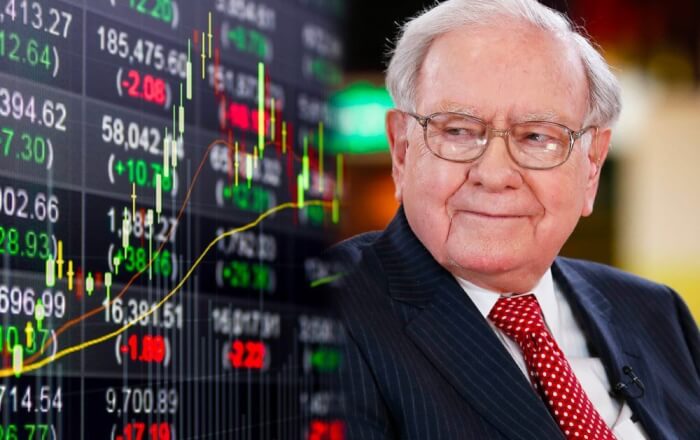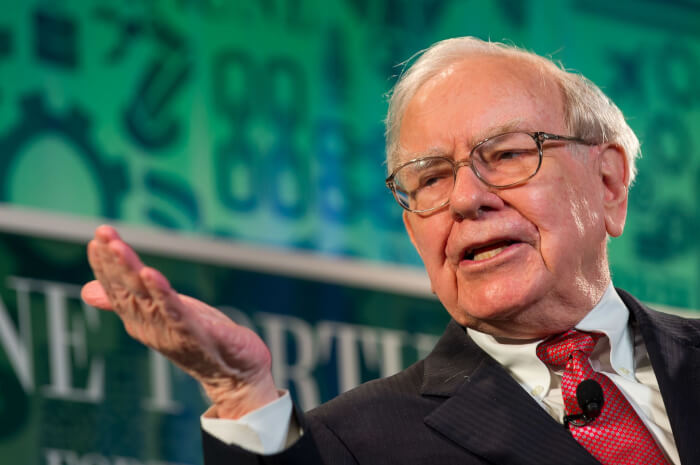Stuck On Stock Beginning? Pick Up These 6 Tricks On Stock Selection From Legendary Investor Warren Buffett
In the world of investors, billionaire Warren Buffett – the “Sage” of Omaha – has valuable investing tips.
Since his first investment in 1965, Warren Buffett has accumulated more than $50 billion just from investment. It can be concluded that up to now, no stock investor has surpassed him in terms of profitability. Currently Buffett is in the top 10 of Forbes’ real-time billionaire list, netting $100.3B.
Accordingly, value investors will look for stocks whose market price is lower than true value. There is no specific formula to evaluate; instead, investors will study the basic elements of the business, finding out its hidden potential.
Warren Buffett pushes this investment rule even higher, when he tracks the profitability of that company's business. When investing in a certain stock, he doesn't care how the market works, but how much money the business will make. Here are 6 questions the Berkshire Hathaway CEO uses to value and select stocks:
ROE = Net Income / Shareholder’s Equity
Investors should always look at ROE from the past 5 to 10 years to analyze historical performance, instead of looking only at last year’s ROE.
D/E = Total Liabilities / Shareholder’s Equity
This ratio illustrates the proportion of equity and debt the company uses to finance its assets. The greater the ratio, the larger the debt rather than equity is financing the company, and vice versa. A high D/E ratio may lead to volatile earnings and large interest expenses.
A company’s historical performance should never be underestimated, as this performance reflects the company’s capacity of increasing shareholder value. Although, a stock’s past performance does not guarantee its future one. Here is where value investors show their ability to determine how well the enterprise can work compared to its past performance, which is, of course, very tricky.
Investors can also rely on regular financial statements on the Securities and Exchange Commission (SEC) to analyze the data related to company’s performance from the past to the current. From there one can make important investment decisions.
To do that, investors need to analyze fundamental data such as profitability, revenue and assets as well as liquidation value. Liquidation value does not include tangibles such as the value of the brand of the business.
Once the calculation is done, Buffett compares it to the current capitalization of the business. Specifically, if his calculated value is at least 25% higher than the market capitalization, he will invest in this business.
In short, Buffett’s way of selecting stocks is like how a bargain hunter goes shopping. The strategy is somewhat practical and down-to-earth. The billionaire maintains this style in other facets of his life: from the moderate house he resides in to the small amount of cars he owns to his modest breakfast.
H/T: investopedia.com
Since his first investment in 1965, Warren Buffett has accumulated more than $50 billion just from investment. It can be concluded that up to now, no stock investor has surpassed him in terms of profitability. Currently Buffett is in the top 10 of Forbes’ real-time billionaire list, netting $100.3B.
 Source: Pinterest
Source: Pinterest
Accordingly, value investors will look for stocks whose market price is lower than true value. There is no specific formula to evaluate; instead, investors will study the basic elements of the business, finding out its hidden potential.
Warren Buffett pushes this investment rule even higher, when he tracks the profitability of that company's business. When investing in a certain stock, he doesn't care how the market works, but how much money the business will make. Here are 6 questions the Berkshire Hathaway CEO uses to value and select stocks:
 Source: Quora
Source: Quora
How does the company perform?
According to Buffett, investors should look at Return on Equity (ROE) to evaluate this. This metric is the return that shareholders can get from an investment, showing how much return one can expect. Buffett always looks at ROE to assess whether this business is stable and efficient. ROE is calculated as follows:ROE = Net Income / Shareholder’s Equity
Investors should always look at ROE from the past 5 to 10 years to analyze historical performance, instead of looking only at last year’s ROE.
Can the company get out of debt?
The Debt-to-Equity ratio (D/E) is an important factor that Buffett often scrutinizes. Value investors will look to buy shares from businesses with low debt, which means that the profits will come from shareholders' equity, instead of borrowed capital. The D/E is calculated as follows:D/E = Total Liabilities / Shareholder’s Equity
This ratio illustrates the proportion of equity and debt the company uses to finance its assets. The greater the ratio, the larger the debt rather than equity is financing the company, and vice versa. A high D/E ratio may lead to volatile earnings and large interest expenses.
High or low profit margin?
The profitability of a business can be assessed based on the profit margin. In addition, investors should find out if this profit margin has a steady increase or not. In order to be sure, profit margins should be examined for the last 5 years. If the profit margin is high, it means that this business is doing well, and the current leader has stable management ability. Additionally, increasing margins mean management has been extremely efficient and successful at controlling expenses. Source: Investopedia
Source: Investopedia
How long has the company been public?
Billionaire Warren Buffett rarely cares about new companies having initial pubic offerings (IPOs). Instead, he focuses on businesses that have been publicly offering shares for at least 10 years. That's because value investors are only interested in businesses that have stood the test of time and are undervalued by the market. Buffett revealed that he didn’t comprehend the operation behind many of today’s tech companies and he only invested in businesses that he truly acknowledged.A company’s historical performance should never be underestimated, as this performance reflects the company’s capacity of increasing shareholder value. Although, a stock’s past performance does not guarantee its future one. Here is where value investors show their ability to determine how well the enterprise can work compared to its past performance, which is, of course, very tricky.
Investors can also rely on regular financial statements on the Securities and Exchange Commission (SEC) to analyze the data related to company’s performance from the past to the current. From there one can make important investment decisions.
Does the company's products depend on any other goods?
The 91-year-old billionaire often avoids investing in companies whose products are not outstanding compared to competitors in the same industry, or are too dependent on input materials such as oil or gas. According to him, if a business is no different from a rival company, it is very unlikely to be profitable. Source: Forbes
Source: Forbes
Is the stock value about 25% less than its true value?
After five questions, investors still need to answer this last one. Spotting stocks that are undervalued is the most important skill.To do that, investors need to analyze fundamental data such as profitability, revenue and assets as well as liquidation value. Liquidation value does not include tangibles such as the value of the brand of the business.
Once the calculation is done, Buffett compares it to the current capitalization of the business. Specifically, if his calculated value is at least 25% higher than the market capitalization, he will invest in this business.
In short, Buffett’s way of selecting stocks is like how a bargain hunter goes shopping. The strategy is somewhat practical and down-to-earth. The billionaire maintains this style in other facets of his life: from the moderate house he resides in to the small amount of cars he owns to his modest breakfast.
H/T: investopedia.com
Share this article
Advertisement